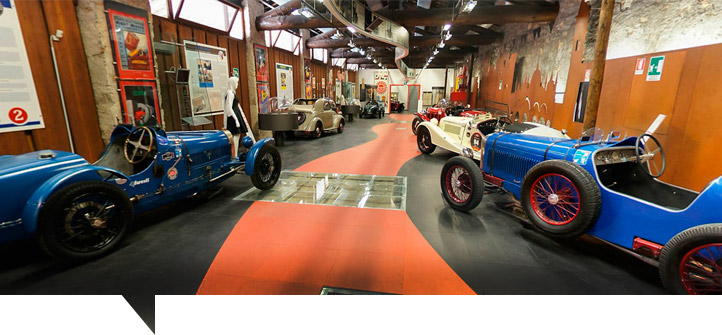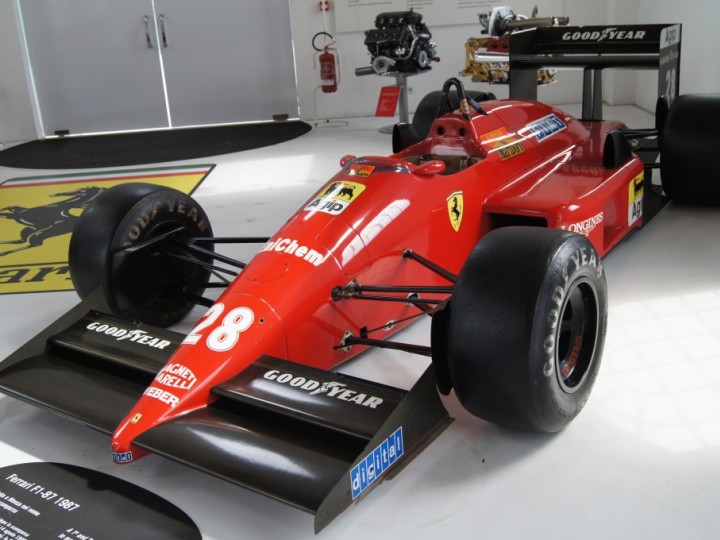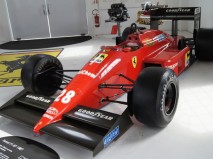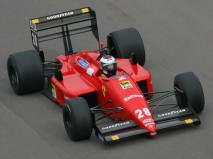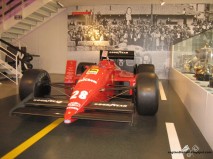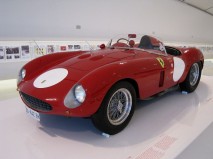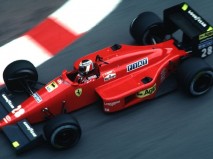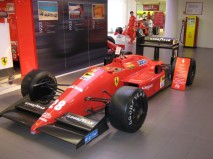1987 Ferrari F1-87
Engine: V6-cylinder 900
Bore & Stroke : 81 mm x 48.4 mm
Total displacement - 1496.43 cc
Power - 880 hp at 11500 rpm
The 1987 single-seater boasted a V6 engine but the big differences were that there was a 90° angle between the cylinder banks, and the cylinder block was made of cast iron. These two features were chosen to reduce dimensions (the narrower V helped there) and improve the toughness of the cylinder block given that the engine now generated up to 1,000bhp tests. The new six-speed gearbox was new too to meet the requirements of the narrower torque range in the engine’s field of use. The suspension geometry and pull-rod spring action system was largely unchanged. But even this powerful new engine was not enough to improve things and 1987’s dearth of wins was broken only in the last two races thanks to Austrian Gerhard Berger’s wins in Japan and Australia (seen here ahead of his team-mate Alboreto).
The season was marred by the F1-87’s unreliability caused by the new engine. In fact, the Scuderia’s drivers were forced to retire on 19 occasions and scored a total of 53 points. The Championship was dominated by Nelson Piquet and Nigel Mansell’s Williams’ cars, with the Brazilian driver taking his third World title.

